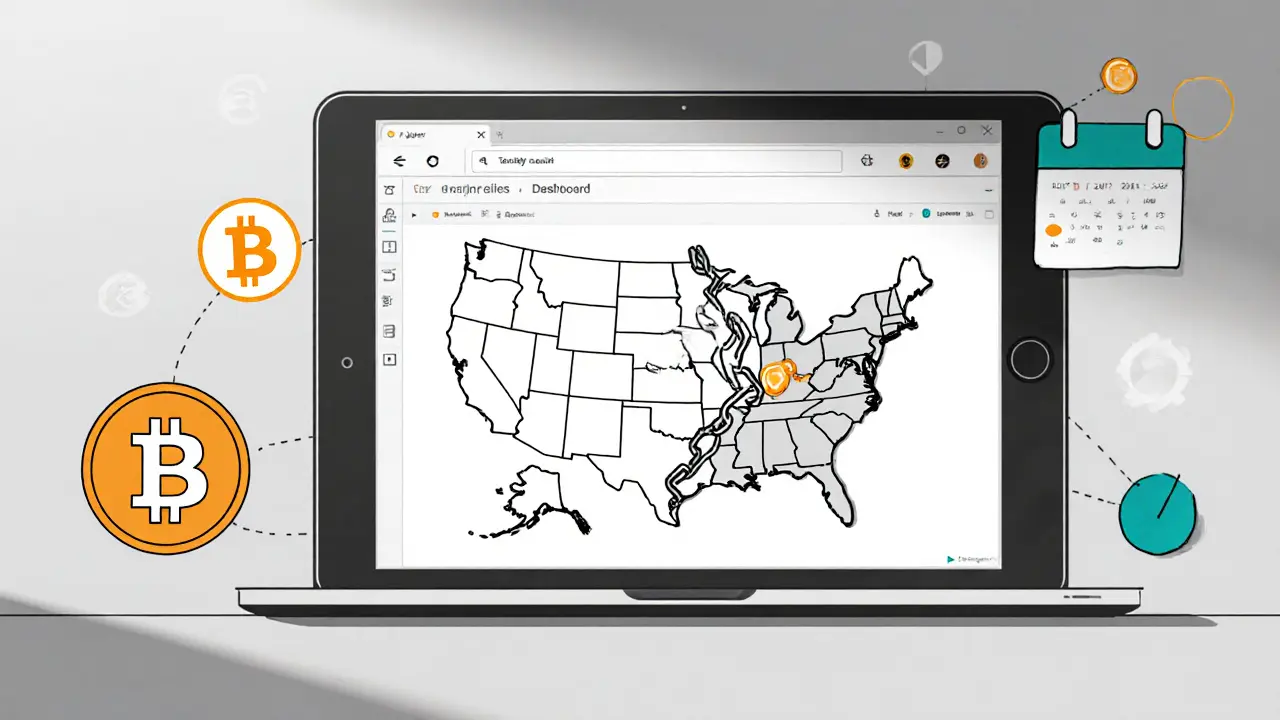Syria Crypto Sanctions – A Clear Guide
When dealing with Syria crypto sanctions, the set of U.S. Treasury measures that block digital‑asset transactions linked to Syria. Also known as Syria digital‑asset restrictions, they aim to stop money flowing to sanctioned entities. OFAC, the Office of Foreign Assets Control that administers these rules is the primary agency enforcing them.
Understanding cryptocurrency compliance, the process of aligning crypto activities with legal and regulatory frameworks is the first step to avoid trouble. Compliance requires screening wallet addresses, transaction histories, and counter‑party identities against OFAC’s sanctions list. Many platforms now embed automated checks that flag suspicious transfers before they hit the blockchain.
One common myth is that using privacy‑focused tools automatically hides you from sanctions. In reality, legal risks rise sharply when you try to bypass OFAC filters. Courts have treated evasion as a criminal offense, often resulting in hefty fines and asset seizures. The risk isn’t just theoretical—recent cases show regulators tracing mixed‑coin swaps back to their source.
So, how does a trader stay safe? First, integrate a reliable sanctions screening API that updates in real time. Second, maintain detailed KYC records for every user, even if they only trade on a decentralized exchange. Third, implement transaction limits that trigger manual review when thresholds are crossed. These measures create a compliance net that catches issues before they explode.
Another layer to consider is sanctions evasion techniques, methods like mixing services, chain hopping, and off‑shore wallets used to hide illicit flows. While they sound high‑tech, regulators have learned to follow the money across chains using blockchain analytics firms. If you’re caught, the fallout can include account bans, legal subpoenas, and damage to your reputation.
Businesses that operate across borders face an added challenge: differing national stances on Syrian sanctions. Some jurisdictions may not enforce U.S. rules, but most major crypto services comply globally to stay on partnership platforms. Ignoring this can close doors to liquidity providers and fiat on‑ramps.
From a practical standpoint, keep an eye on the OFAC sanctions list, the official publication that details restricted individuals, entities, and activities. It’s updated regularly, and missing a change can instantly make a previously clean address non‑compliant. Subscribe to alerts or use a compliance dashboard that highlights new entries.
Risk management also means training your team. Crypto compliance isn’t a one‑time setup; it requires ongoing education about evolving tactics and regulatory notices. Run quarterly drills that simulate a sanctions alert, and document the response steps. Auditors love that record when they check your compliance posture.
Key Takeaways for Navigating Syria Crypto Sanctions
In short, Syria crypto sanctions affect anyone who moves digital assets tied to Syrian entities. The core entities—OFAC, cryptocurrency compliance, legal risks, and sanctions evasion—are tightly linked. By building automated screening, maintaining thorough KYC, and staying current on the sanctions list, you reduce exposure and keep your operations on solid ground.
Below you’ll find a curated set of articles that break down each of these pieces in detail: from deep dives on legal repercussions to step‑by‑step compliance guides. Dive in to sharpen your crypto strategy and stay ahead of regulatory shifts.

Syria Crypto Sanctions: What the New US Relief Means and Ongoing Compliance Hurdles
Explore how the 2025 US sanctions relief reshaped Syria's crypto scene, the lingering compliance hurdles, user challenges, and future market outlook.
